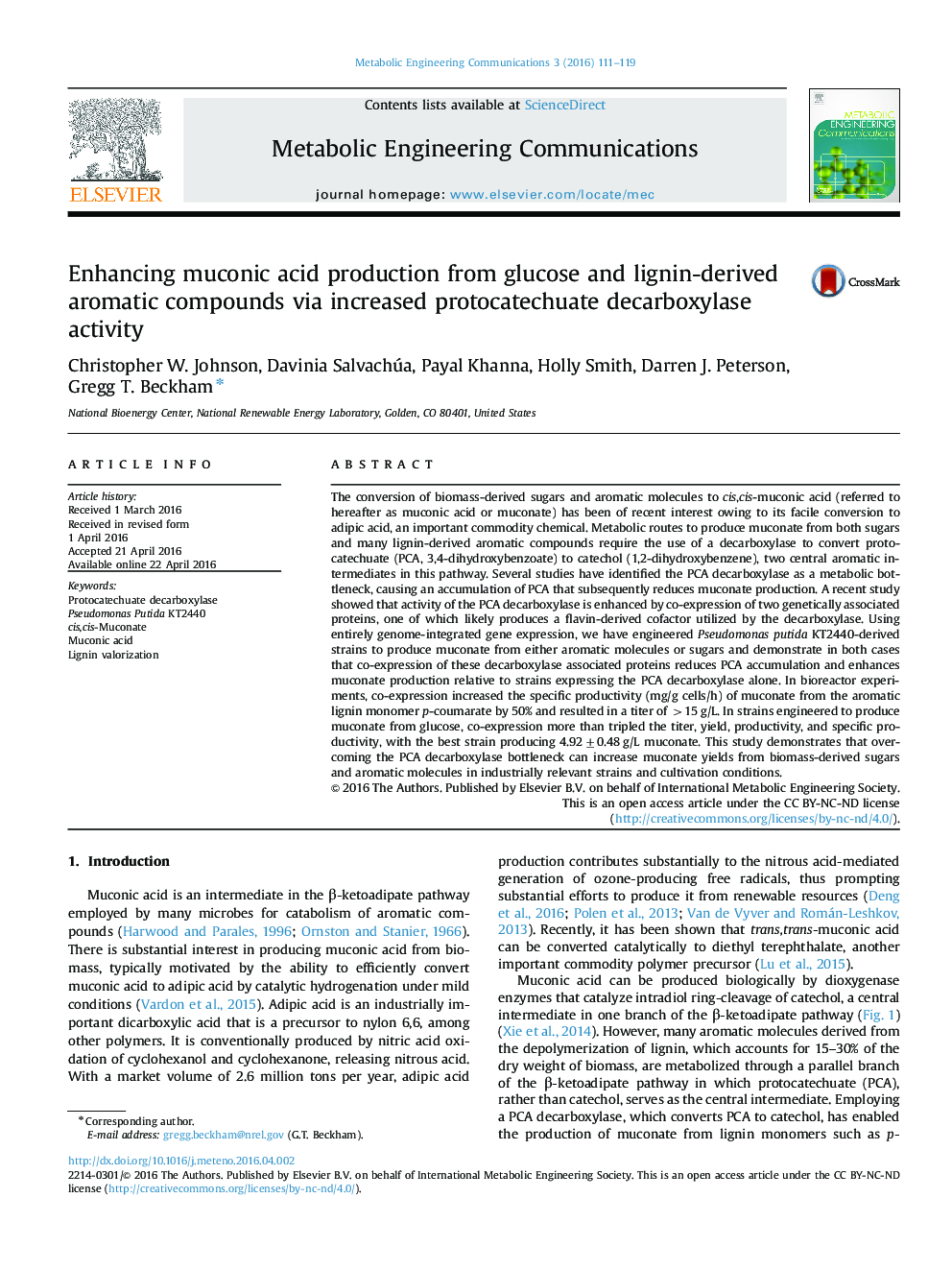| کد مقاله | کد نشریه | سال انتشار | مقاله انگلیسی | نسخه تمام متن |
|---|---|---|---|---|
| 571843 | 1452604 | 2016 | 9 صفحه PDF | دانلود رایگان |
• We engineered Pseudomonas putida to produce muconate from p-coumarate and glucose.
• A protocatechuate decarboxylase was expressed with two associated proteins.
• Co-expression of these proteins reduced protocatechuate accumulation.
• Co-expression of these proteins reduced enhanced muconate production up to 3X.
• 15.6 g/L muconate was produced from p-coumarate and 4.92 g/L from glucose
The conversion of biomass-derived sugars and aromatic molecules to cis,cis-muconic acid (referred to hereafter as muconic acid or muconate) has been of recent interest owing to its facile conversion to adipic acid, an important commodity chemical. Metabolic routes to produce muconate from both sugars and many lignin-derived aromatic compounds require the use of a decarboxylase to convert protocatechuate (PCA, 3,4-dihydroxybenzoate) to catechol (1,2-dihydroxybenzene), two central aromatic intermediates in this pathway. Several studies have identified the PCA decarboxylase as a metabolic bottleneck, causing an accumulation of PCA that subsequently reduces muconate production. A recent study showed that activity of the PCA decarboxylase is enhanced by co-expression of two genetically associated proteins, one of which likely produces a flavin-derived cofactor utilized by the decarboxylase. Using entirely genome-integrated gene expression, we have engineered Pseudomonas putida KT2440-derived strains to produce muconate from either aromatic molecules or sugars and demonstrate in both cases that co-expression of these decarboxylase associated proteins reduces PCA accumulation and enhances muconate production relative to strains expressing the PCA decarboxylase alone. In bioreactor experiments, co-expression increased the specific productivity (mg/g cells/h) of muconate from the aromatic lignin monomer p-coumarate by 50% and resulted in a titer of >15 g/L. In strains engineered to produce muconate from glucose, co-expression more than tripled the titer, yield, productivity, and specific productivity, with the best strain producing 4.92±0.48 g/L muconate. This study demonstrates that overcoming the PCA decarboxylase bottleneck can increase muconate yields from biomass-derived sugars and aromatic molecules in industrially relevant strains and cultivation conditions.
Journal: Metabolic Engineering Communications - Volume 3, December 2016, Pages 111–119
